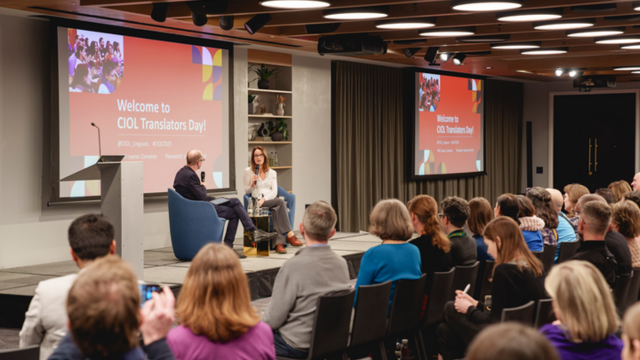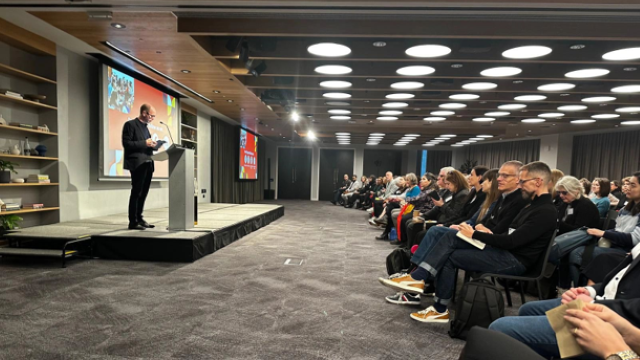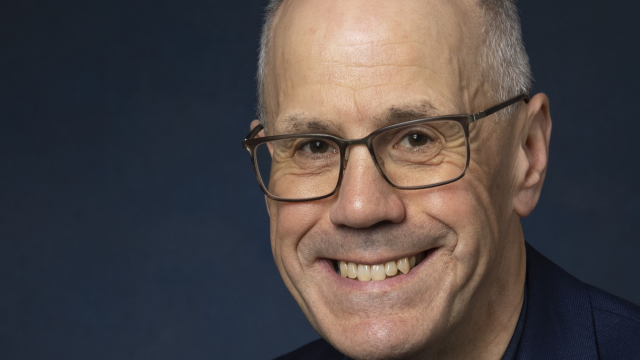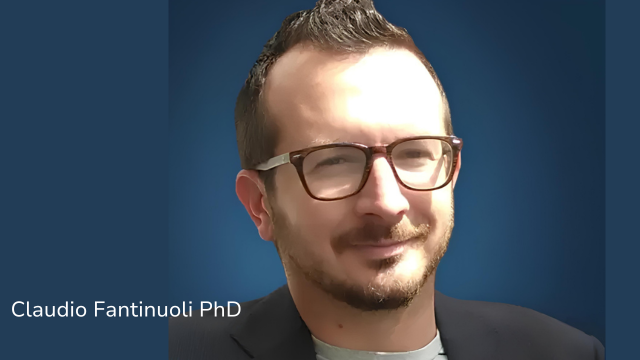-
QUALIFICATIONS
- For Linguists Worldwide
- For UK Public Services
- Preparation
- Policies & Regulation
-
MEMBERSHIP
- Join CIOL
- Membership grades
- NEW for Language Lovers
- Chartered Linguist
- Already a member?
- Professional conduct
- Business & Corporate Partners
-
ASSESSMENTS
- For Second Language Speakers
- English as a Second Language
-
EVENTS & TRAINING
- CPD, Webinars & Training
- CIOL Conference Season 2025
- Events & Networks
- CIOL Mentoring
-
NEWS & VOICES
- News & Voices
- CIOL eNews
- CIOL Awards
- The Linguist
- Jobs & Ads
-
RESOURCES
- For Translators & Interpreters
- For Universities & Students
- Standards & Norms
- CIOL & AI
- All Party Parliamentary Group
- In the UK
- UK Public Services
- Find-a-Linguist
CPD for Professional Linguists

Keep learning everyone!
By Mark Robinson
Continuing Professional Development (CPD) is an important subject for professional linguists – and rightly so. For translators, interpreters, project managers – and indeed for many other roles, some of which are evolving in the profession – it matters. CPD ensures that linguists maintain and enhance their languages, skills, knowledge, and expertise throughout their careers, fostering both professional growth and industry credibility.
What is CPD and why does it matter?
CPD, as defined by the Chartered Institute of Linguists (CIOL), involves the continuous maintenance, development and extension of our languages, professional skills, competencies, and knowledge. Similarly, the Institute of Translation and Interpreting describes it as an ongoing commitment to training and professional development and an integral part of a linguist’s working life. For early-career linguists, CPD provides a structured approach to continued learning after university, bridging the gap between academic study and real-world practice. For seasoned language professionals, it serves as a way to stay engaged, refine expertise, and to keep the passion for languages and cultures alive in an ever-evolving industry and as we grow through life.
In many regulated professions – such as medicine, architecture, and accounting – CPD is a mandatory requirement. While professional translators are not (yet) legally obliged to undertake CPD, its importance cannot be overstated. In a field where technology, regulations and client expectations are constantly shifting, staying informed and up to date is crucial for maintaining high standards and a competitive advantage. Keeping in touch with your source (or target) language and cultural norms is crucial too – depending on where you live and work. Languages ceaselessly evolve and business, legal, technological and social norms are constantly on the move too.
But on top of all that – we do it because we love it! Languages and cultures are an endless source of fascination and it’s great to reconnect with what we love at the same time as investing in our professional skills.
Insights from professional translators
To learn more about how translators approach CPD, at my company Alexika we conducted a brief survey of our freelance team in preparation for a recent talk I gave at Cardiff University’s MA in Translation course. The results were unanimous: CPD is invaluable. The methods of engagement varied widely, from individual research and formal training to mentoring emerging professionals.
Some of the most telling comments highlighted the practical benefits of CPD:
- “It is crucial for me to have up-to-date knowledge of these expanding fields to demonstrate to my clients that I (still) know what I’m talking about.”
- “I feel exceptionally fortunate to have found a career that has suited me so well for so many years.”
This reinforces the idea that CPD is not just about meeting industry expectations – it’s about personal fulfilment and staying passionate about one’s craft.
CIOL also recently conducted a snap poll of members on the vexed question of how much time professional linguists actually spend on CPD. The results were fascinating, and revealed just how important to language professionals staying on top of our languages is with three quarters of people spending more than 10% of their CPD time on their languages, and more than a quarter spending more than half of their CPD time on maintaining, developing and extending their language skills:
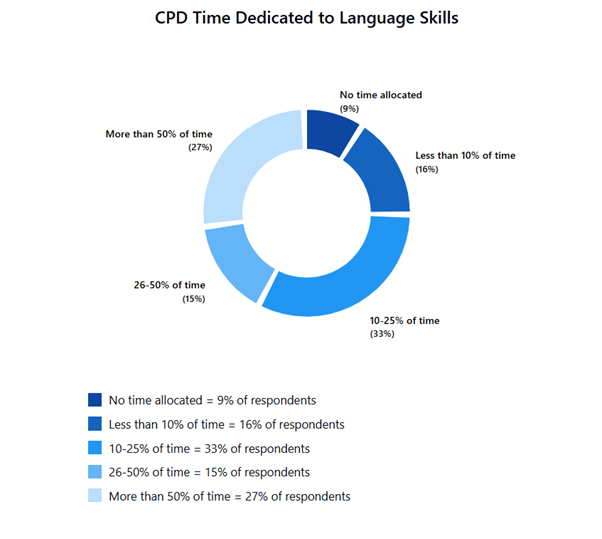
Surely this is what we want to see. We are linguists and the most important professional skill we have is our mastery of languages. CIOL CEO John Worne kindly quoted me at Translators Day as saying:
“Our core language skills and cultural understanding are our superpowers as professional linguists.”
I stand by that! And here is what other CIOL members had to say in response to the poll question:
- "I take opportunities when these are available and suitable while maintaining active practice on the languages I work with. In addition to the above, I read and research topics and articles that I consider useful to improve my professional knowledge and capabilities."
- "The love I have for both the English and French languages, which are the two I have dedicated my entire life to, is a serious enough motivation and I keep reading and listening to – in short, exposing myself to – anything I can on a daily basis. Therefore, I focus all my CPD on other aspects i.e. legal to support my sworn/certified translator-interpreter status in various countries."
A lifelong commitment to learning
Ultimately though CPD is more than just an industry or professional best practice – it is a mindset. For professional linguists, embracing continuous learning is essential for maintaining relevance, credibility, and a deep-rooted passion for language. Whether through formal courses, networking events, or self-directed study, investing in CPD is an investment in a thriving, fulfilling career. Keep working on those language superpowers!
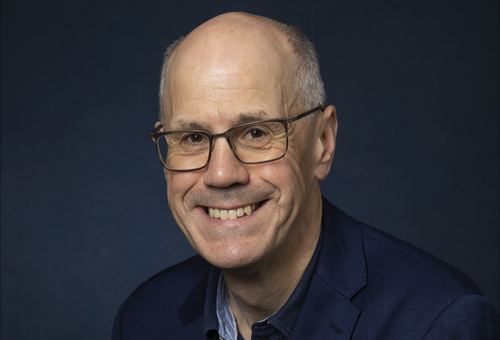
Mark Robinson MCIL Chartered Linguist, CIOL Council member and Director of Alexika Ltd. This article is adapted from a talk to the students of the MA in Translation course at Cardiff University in March 2025.
Views expressed on CIOL Voices are those of the writer and may not represent those of the wider membership or CIOL.
Filter by category
More
The Chartered Institute of Linguists (CIOL), Incorporated by Royal Charter, Registered in England and Wales Number RC 000808 and the IoL Educational Trust (IoLET), trading as CIOL Qualifications, Company limited by Guarantee, Registered in England and Wales Number 04297497 and Registered Charity Number 1090263. CIOL is a not-for-profit organisation.

